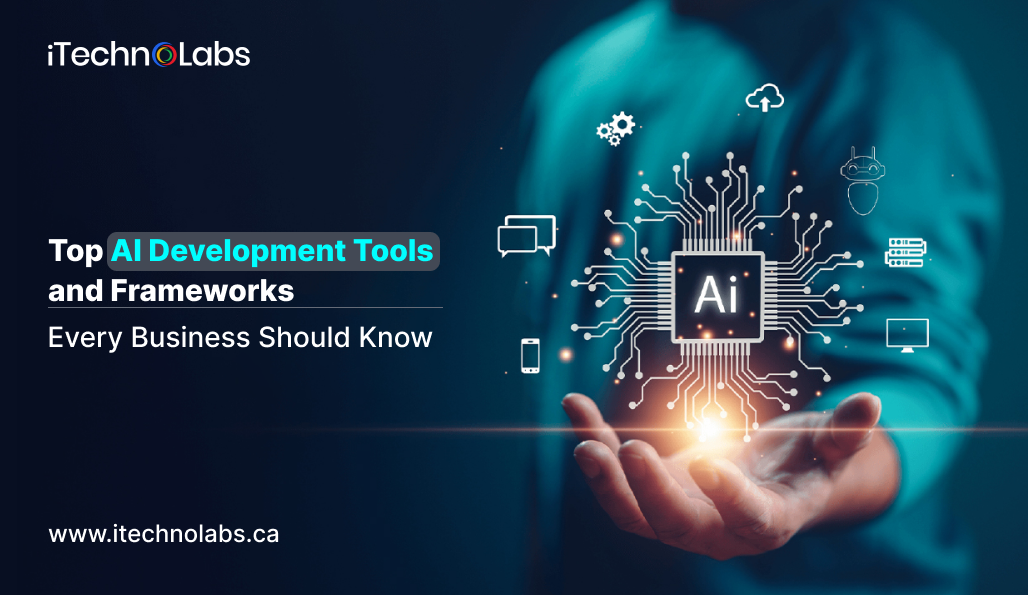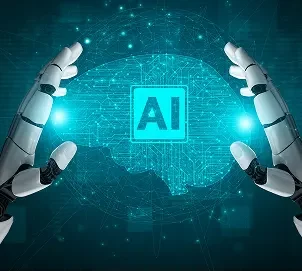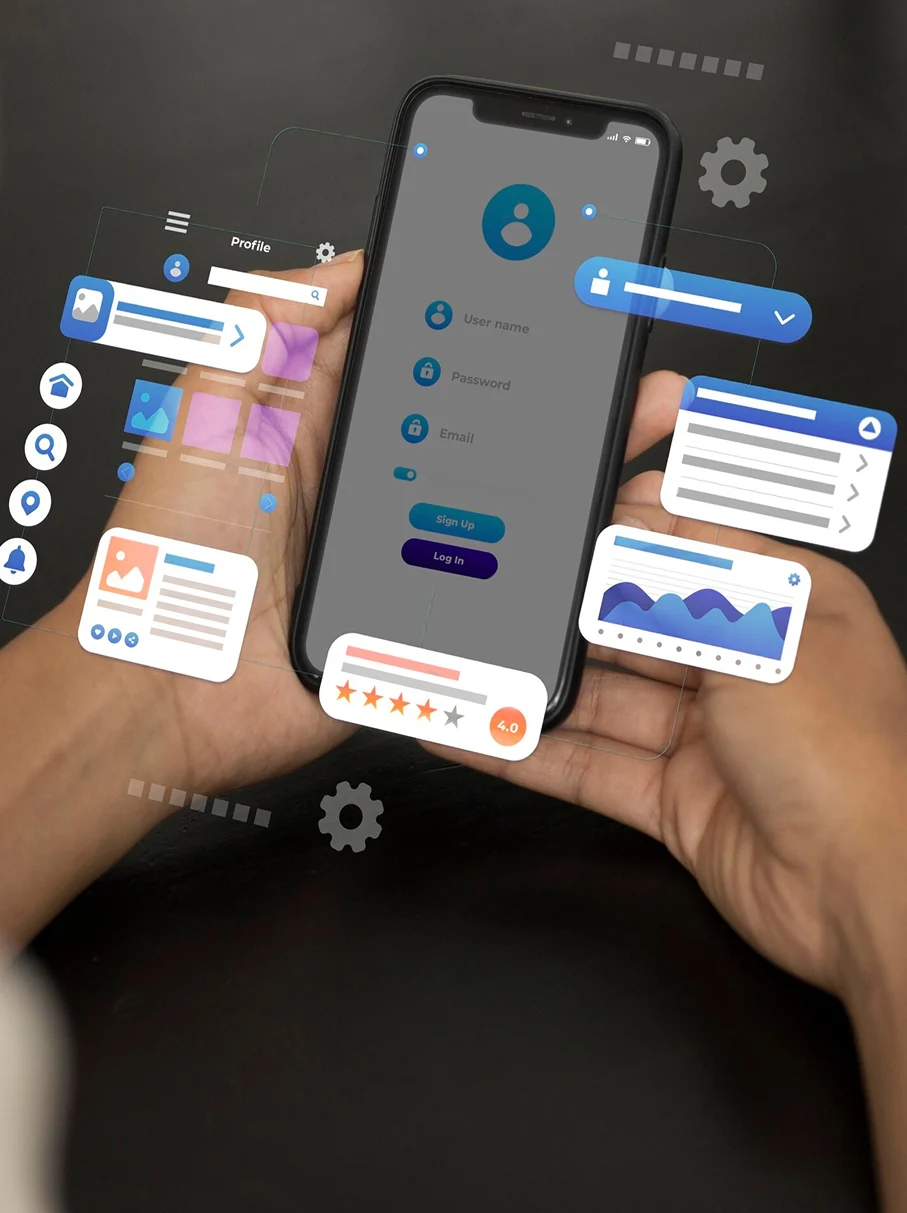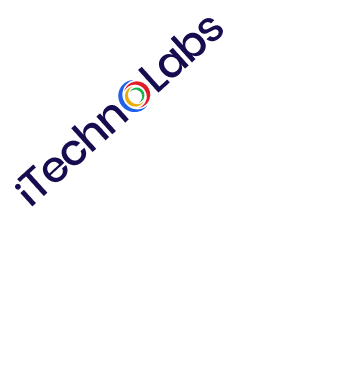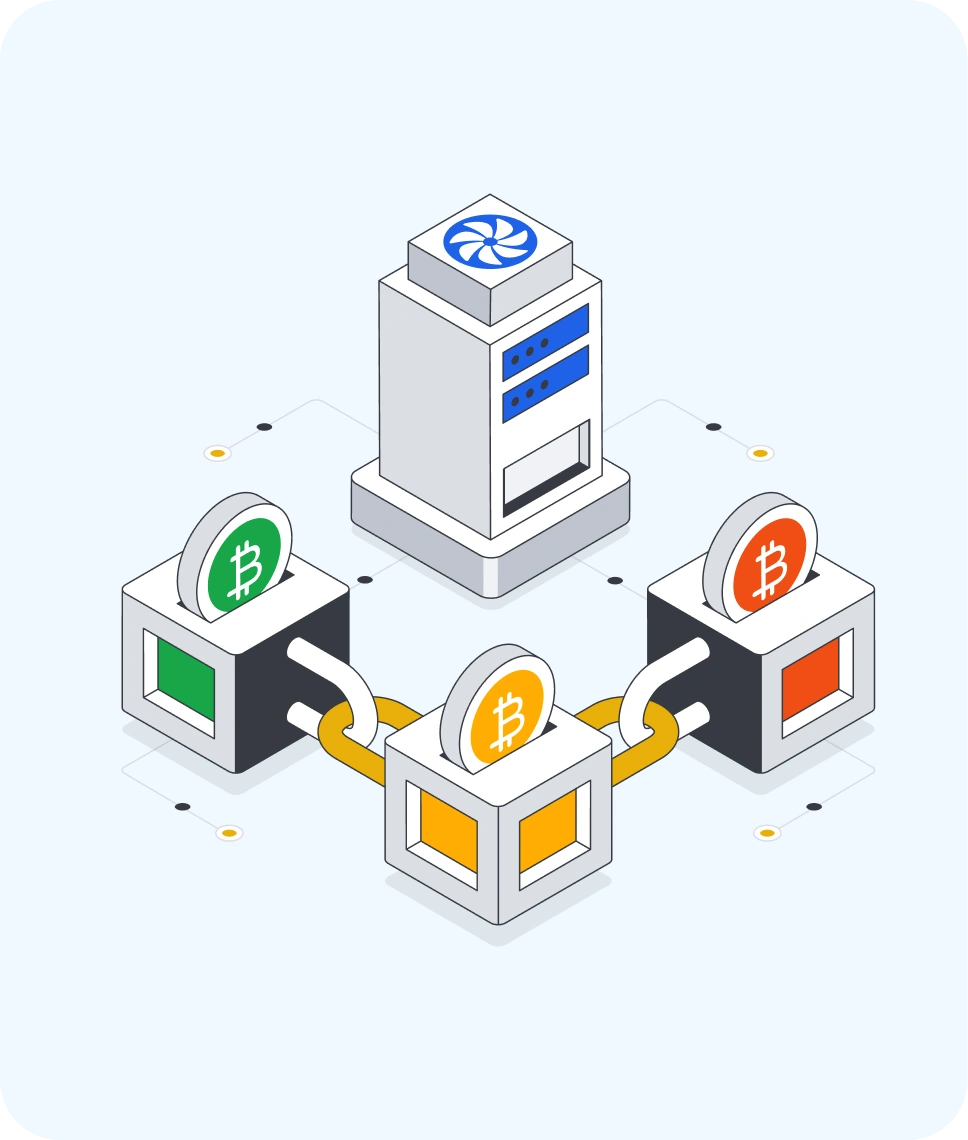AI is not the future but a reality which is changing how businesses work around the globe. It allows organizations to boost productivity, improve customer satisfaction rate, save costs, invent new products and much more.
At the core of AI are the AI agents and chatbots which remain just a click away and save time for the managers to focus on making strategies for the future. Today organizations don’t need to be dependent on outside AI software, rather they can develop their own AI. For developing AI, one must know the required tools and frameworks. Read this blog to learn about the best AI development tools and frameworks.
Understanding AI Development Tools
AI development tools are software programs that use artificial intelligence and assist developers in building an AI tool. These programs automate repetitive tasks of developers such as generating code, fixing bugs, tweaking the design and more.
Benefits of AI Development Tools
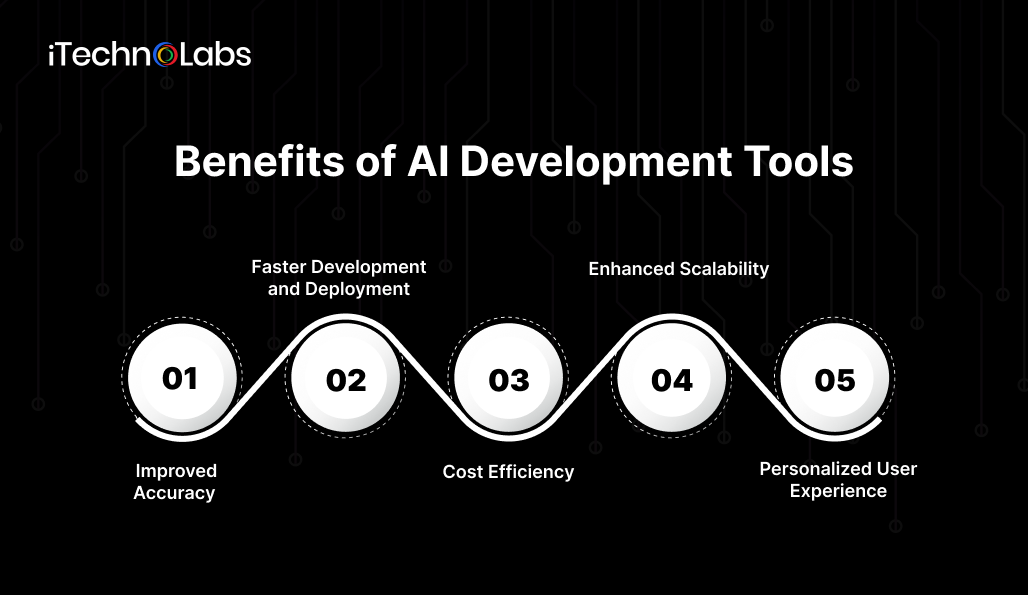
Following are some benefits of AI development tools:
1. Improved Accuracy
Precision is critical in software development to ensure that the final product is reliable. AI development tools automate specific tasks and perform code analysis, thus achieving a high level of accuracy.
There are many AI tools that examine the code and identify potential bugs before the application goes live.
2. Faster Development and Deployment
AI development tools accelerate the entire lifecycle of building intelligent applications. They provide pre-built frameworks, libraries, and APIs that eliminate the need to code everything from scratch. Developers can quickly design, train, and test AI models with automation features. This speed reduces time-to-market for businesses and ensures innovation cycles remain short.
3. Cost Efficiency
AI development tools minimize costs by reducing infrastructure, manpower, and maintenance expenses. Cloud-based AI platforms offer scalable computing power without requiring heavy upfront investments in servers or GPUs. Automated workflows lower the need for large teams, as repetitive tasks like data labeling, testing, and model optimization are streamlined. Open-source frameworks further cut licensing costs. This efficiency allows startups and enterprises alike to experiment with AI projects at affordable rates.
4. Enhanced Scalability
AI development tools make it easier to scale projects as data volumes and business needs grow. Cloud-based platforms allow developers to train and deploy models on massive datasets without performance bottlenecks. These tools support integration with existing systems, enabling smooth expansion across departments or regions.
5. Personalized User Experience
AI development tools not just help in coding but go beyond that. By using machine learning algorithms they analyze user behaviour and adapt the feed accordingly.
AI development tools create personalized feeds that match with the exact taste and preferences of the users. This also helps to increase the customer retention rate.
Top AI Tools Transforming Development
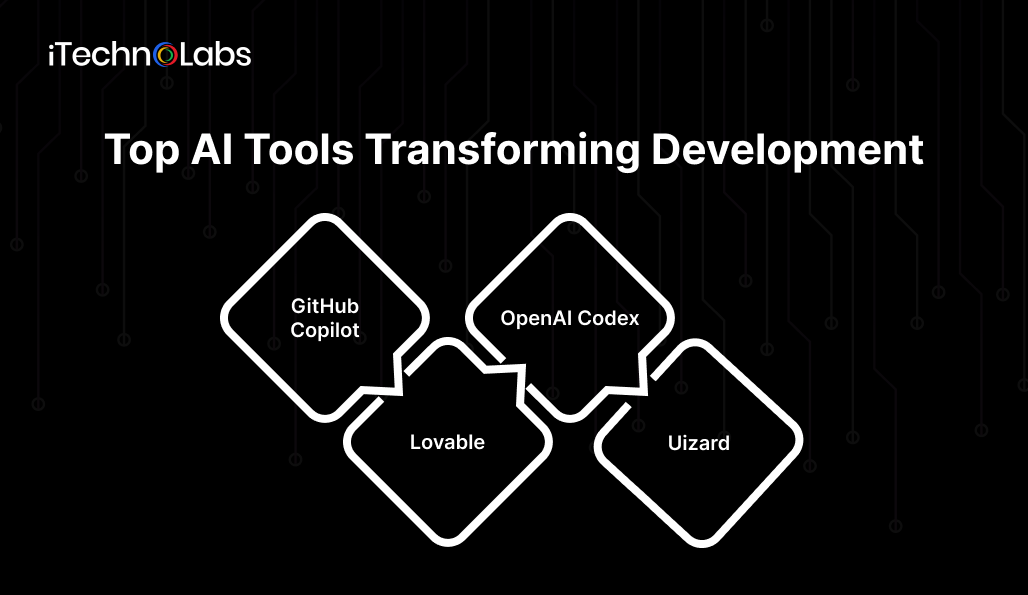
There are a wide range of AI development tools available in the market for businesses. Every AI tool is different in terms of capability, features and limitations, therefore it’s important to evaluate all the tools and then choose the best one for your business. Here are some of the most popular AI development tools:
1. GitHub Copilot
GitHub Copilot is an AI-enabled coding assistant that helps developers write codes faster and provide real-time suggestions. It uses advanced machine learning algorithms to write entire blocks of code in no time.
Key Features
- Real-time coding suggestions: The tool provides inline suggestions as the developer types. The suggestions are always related to the specific context of the project.
- Multiple language support: GitHub Copilot is proficient in assisting developers for a wide range of programming languages.
- Consistent improvement: The tool regularly improves itself through the vast amount of codes included in GitHub.
2. Lovable
Lovable is an AI-powered development tool that allows you to create websites and web applications without having any coding experience. You can use text-based prompts and define what features and design you want for your website. If you have a bit of coding experience you can tweak the existing codes of lovable.
Key Features
- Full-stack development: This AI development tool automatically generates front-end and back-end tool code for your project.
- Content connection: You can import content directly from Figma into your lovable landing page.
- Access to code: There is a dev mode through which you can edit all your codes in a lovable project editor without GitHub connection.
3. OpenAI Codex
OpenAI’s Codex, based on Codex-1, is an AI development tool that has been specifically made for software engineering tasks. It can help with code creation, request review, and commit request generation. To access this, simply go to ChatGPT, select code, and ask questions regarding your coding task.
Key Features
- Code and content generation: It can generate informative content and codes in real-time facilitating rapid development.
- GitHub integration: This AI development tool connects to GitHub for direct feedback, and in-workflow updates.
- Improve collaboration: Even non-engineers can also suggest changes and provide feedback using Codex.
4. Uizard
Uizard is an AI-powered development tool made for non-designers and professionals to create website designs at a lightning speed. Using this is simple, as one just has to make a hand sketch and the tool will automatically create its digital prototypes.
Key Features
- Rapid prototyping: It quickly converts hand-drawn designs into prototypes.
- AI powered templates: This AI development tool offers smart suggestions for design elements.
- Collaboration: It allows teams to collaborate on projects in real-time.
Also, read: AI Agent in Customer Service
What are AI Frameworks?
AI frameworks are pre-built collections of codes, functions, tools, and libraries. It simplifies the development and training of AI. As the name suggests they are pre-existing standard frameworks on which developers just have to do their own creativity. By using frameworks developers don’t have to start from scratch every time they have to make an application. Frameworks make the work seamless, efficient, and easier to implement AI functionalities.
Top AI Development Frameworks in 2025
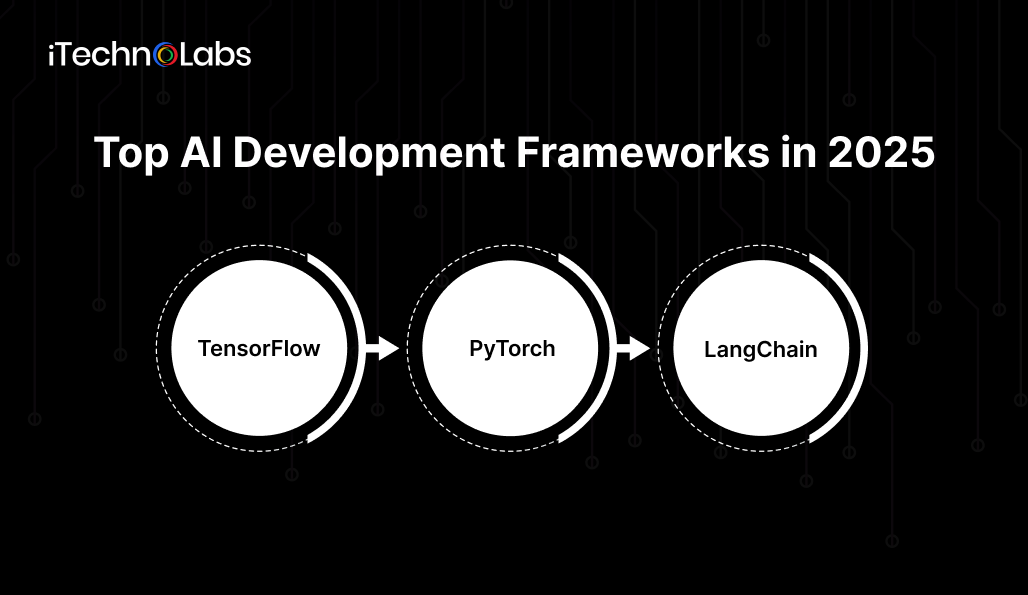
Frameworks are the pre-existing ecosystems which developers used to make new AI tools. The frameworks allow developers to use a variety of resources to streamline their development process. Following are the most popular AI development frameworks:
1. TensorFlow
TensorFlow is an open-source software library made by Google for machine learning and artificial intelligence for building deep learning neural networks. It offers an ecosystem of tools and resources, for developers to create ML models. This AI development framework is used in areas like natural processing language, computer vision, and fraud detection.
Pros
- Scalable: One of the biggest advantages of TensorFlow is that it is not limited to a single device but can work on multiple devices.
- Open source platform: One doesn’t have to pay anything to use TensorFlow which makes it one of the most affordable AI development frameworks.
Cons
- No Windows support: TensorFlow doesn’t provide many features to Windows users, while for Linux users it has a wide range of good features.
- Slow: As compared to other AI development frameworks, it is slow and less usable.
2. PyTorch
PyTorch is an open-source ML framework developed by Meta AI and is now a part of the Linux Foundation Umbrella. It is made on Python which makes it easy for developers who know the language prior. It is used in applications like language processing and image recognition.
Pros
- Easy to use: PyTorch has the same interface as Python which makes it easy for python developers to work on it.
- Compatible with Python libraries: PyTorch integrates easily with Python libraries such as Pandas and NumPy, and simplifies the process of manipulating and analyzing data.
Cons
- Not for mobile devices: PyTorch mobile can be used to run PyTorch models on Android, though it is not as easy as TensorFlow Lite.
- Lack of visual interface: A major drawback of PyTorch is that it doesn’t have a built-in visual interface.
3. LangChain
LangChain is an open-source AI software framework for developing applications that run by large language models (LLM). It provides tools to develop LLM-powered applications, and allows developers to create applications like chatbots and agents and manage the full development cycle from start to finish.
Pros
- High-level abstractions: LangChain eases the making of LLM-driven applications by providing pre-existing abstractions for tasks such as agent creation and prompt management.
- Strong community support: LangChain has a large and active community that helps beginners to find support and troubleshoot easily.
Cons
- High Technical Expertise: When providing abstractions in LangChain, one needs to have a good level of Technical expertise in Python and LLM concepts to be used.
- Limited Control: Although the high-level abstractions are good for beginner developers, they may feel a bit limited to experienced ones.
Important Article: Benefits of AI in Software Development
Conclusion
Every organization in the world is using AI chatbots and agents to improve their business processes, customer engagement, enhance productivity, provide personalized experience and more. These AI softwares not just make the work easy and save cost but also frees the top leaders to make future strategies. Therefore it’s important for you, if you are a businessman, to have an AI tool in place which can help increase productivity, save your employees time, and achieve your business goals.
Making an AI agent or chatbot all by yourself can be complex and time taking, so the best option is to hire an experienced AI development company. iTechnolabs is a 9 year old AI development company with 230+ team members and 840+ projects delivered successfully. Visit the website now, talk about your requirements and get your AI tool onboard at a lightning speed.
FAQs
1. Which AI tool is best for developers?
The best AI tool for developers will vary depending on the type of work they want to do. For general purpose and coding GitHub Copilot and ChatGPT are best, while for AI-native development environments, cursor and replit ghostwriter works perfect.
2. What is an AI development framework?
An AI development framework is a pre-existing ecosystem which provides tools and resources for developers to build applications. It saves the time of developers to write code from scratch by making changes in the pre-built code.
3. Which AI framework does OpenAI use?
OpenAI uses an agentic framework for chat functions used in the GPT models. This enables developers to create conversational agents, build task management systems, and automate customer support.

